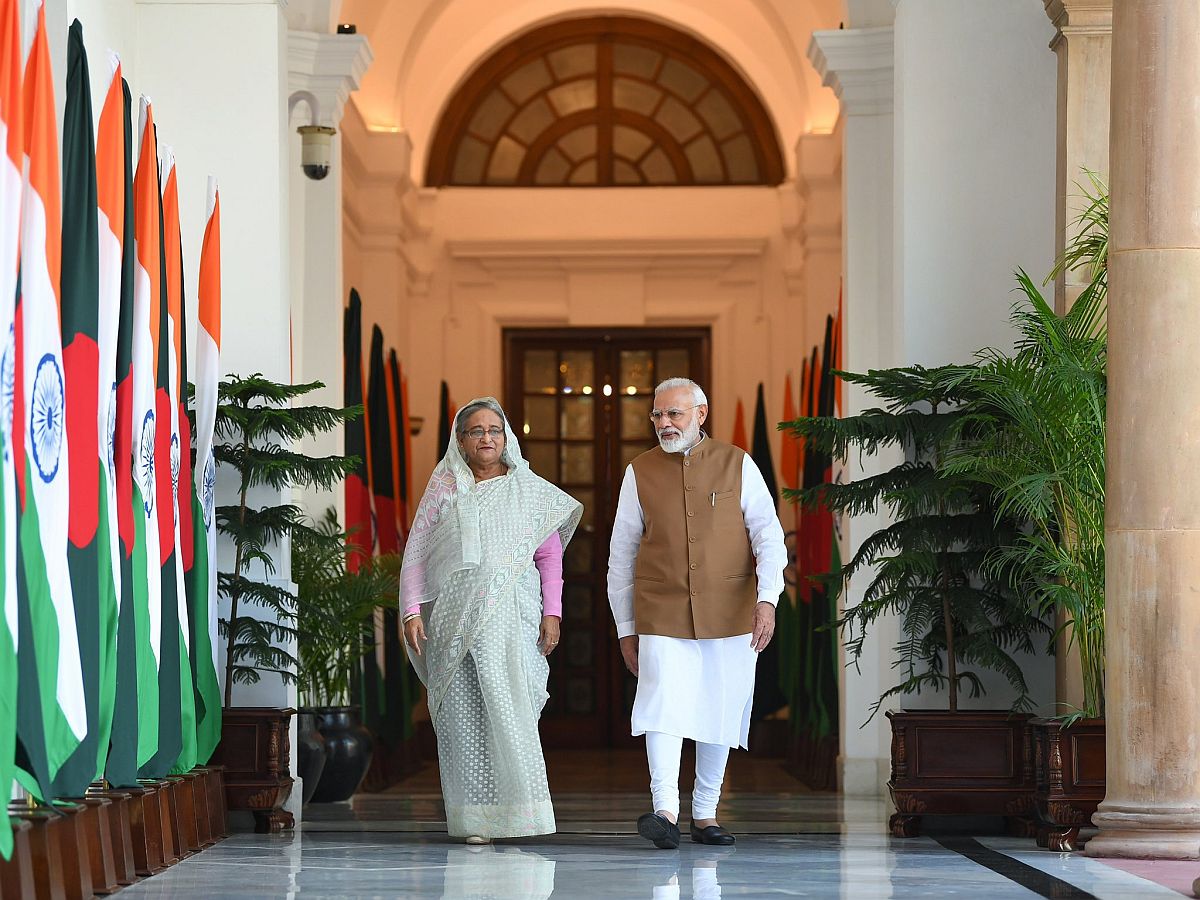India’s equation with Bangladesh ~ as often as not on a roller-coaster depending on the dispensation in Dhaka ~ could scarcely have got off to a more reassuring start than it did on Tuesday when Begum Hasina arrived in Delhi on a four-day visit. Remarkable must be the fact that no fewer than seven Memoranda of Understanding (MoU) were concluded within a couple of hours after she landed in Delhi. Quite the most critical among these was the one on sharing river water with the pre-eminent exception of Teesta. Small wonder that the rather shallow river that meanders through North Bengal has been referred to as the “elephant in the room” for all the “positives” in the other segments. Short of Teesta, a major water-sharing pact related to the MoU for the withdrawal of 153 cusecs of water from the Kushiyara river which flows into Bangladesh from Assam, the junction of transfer being Sylhet across the border.
This agreement is a major victory, so to speak, for Hasina not the least because it signals a breakthrough on a politically sensitive issue not merely in the bilateral construct but also within Bangladesh. The Awami League government in Dhaka has since 2011 been waiting for an agreement on Teesta, one that has not materialized in the face of the stiff opposition by the West Bengal chief minister. Bangladesh has also been insisting on what it calls a “framework for water-sharing”, given the geographical reality that the two countries boast as many as 54 rivers in common. The focus must of necessity be on reality; hilsa diplomacy can scarcely improve the bilateral equation ~ an iterated promise by the Bangladesh PM ~ as it scarcely covers the brass tacks of the diplomatic engagement.
Advertisement
For all the grandstanding in Delhi on Tuesday, Narendra Modi’s diplomatic silence on Teesta might arguably provoke the somewhat pro-Islamic opposition in Dhaka to use the handle to attack Hasina, who has often been criticised for being pro-India. Opposition entities such as Begum Khaleda’s BNP and the Jamaat-e-Islami have already articulated the cavil on the “futility of the visit”. The Opposition includes fundamentalist forces, notably the militants who cross over to India. Realpolitik has seemingly guided India’s response ~ “It is in our interest that her visit to India is seen as a success back home,” is the MEA’s response. At another remove, the junior foreign minister of Bangladesh, Shahriar Alam, said relations between the two countries were not based solely on the logic of lena-dena (give and take)’.
While India’s studied silence on Teesta has disappointed Dhaka, Mr Modi’s pledge to discuss the economic issue has been generally welcomed by the Bangladesh delegation. Specifically, this will envisage a comprehensive economic partnership agreement (CEPA) to increase the volume of bilateral trade. Both countries have agreed to accelerate this growth. Short of a forward movement on Teesta, the proposed pledge on trade must be a salutary development of Begum Hasina’s visit.
A version of this story appears in the print edition of the September 10, 2022, issue.
